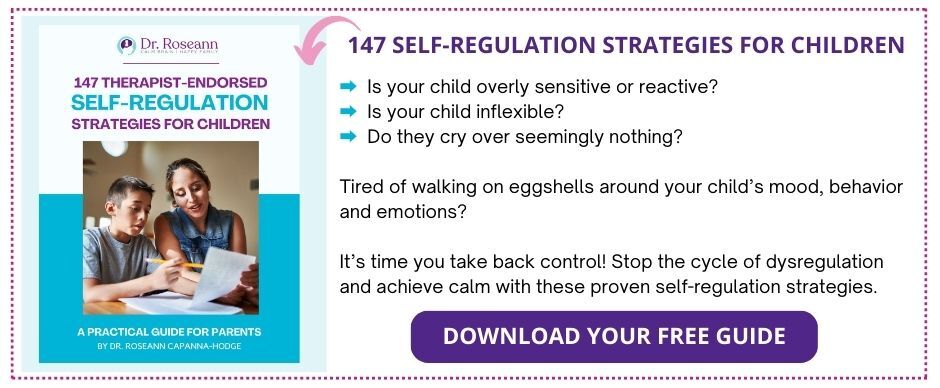When things get a little too overwhelming for us because of our dysregulated kids, we often think we’re helpless but in reality, we can do something about it. There are things we can do to change that not just for them but even for their future generation as we break that cycle.
Because parents have an impact on their children's language, social skills, and self-esteem, whether deliberately or unconsciously, it’s important for us to learn how beneficial it is to regulate ourselves to help our dysregulated kids.
How co-regulation helps dysregulated kids.
All of our actions as parents have an impact on our kids. And as I always say, instead of being freaked out by that, I want you to be empowered. You can head over to our Facebook group (https://www.drroseann.com/group) if you want to be part of a safe space where members empower each other throughout this parenting journey.
Co-regulation can be explained simply as when our child regulates themselves off our emotional state. And so, when they see us all put together, they are more likely to have it together. But for parents with kids who are neurodivergent or have special needs, it has definitely been more challenging.
Personally, I can say that it has not been an easy path to take, always keeping my stuff together. But I can also promise you when I do, my kid is more regulated and that co-regulation is something that we all can achieve no matter what is going on.
We all have our own stuff.
I think there’s no one out there who doesn’t have traumas whether they may be little or big. We all have our own stuff to deal with and so, it isn’t easy for us to deal with other people’s stuff, even our children's. But although it is hard, we must do this so that our child can regulate.
We must reinforce a positive cycle because as we all know, the more dysregulated we are, the more dysregulated our kids are. Kids are highly attuned to their parents' emotional states and often mirror their behavior.
How does emotional regulation develop in the brain?
Co-regulation increases activity and neural pathways in brain regions associated with emotional regulation. It thus improves and promotes healthy brain functioning.
We’ve mentioned that our kids feed off our energy. As such, they’re more likely to have everything together when they see us calm and regulated. However, we also have to take into consideration that we are all allowed to be imperfect. We are allowed to feel things and process our emotions.
Instead, what we’re trying to change here to break the cycle is how we communicate.
You are your child’s teacher when you are struggling.
You are your child's best teacher but in order for you to provide help to your child, you also need to be calm and stable. That’s why when you’re struggling, you need to seek professional guidance. Many people who are often feeling lost come to us and join our group and you can too (https://drroseann.com/group).
Communication is key. You must learn how to properly connect with your child. Parents can encourage healthy emotional development in their children by establishing a secure and comforting environment in which their kids are free to communicate their feelings and worries.
For me, I always try to use sensory activities to connect with a dysregulated child like playing legos and going out for a swim. Parents can develop a feeling of balance and emotional stability by engaging in activities with their kids that encourage relaxation, stress reduction, and personal fulfillment. If these calm moments end in a bad turn and your child dysregulates, I hope you don’t get discouraged.
As much as possible, you also want to watch your tone and body language. Make sure that you’re paying attention to the messages or signals that you’re sending to your kids because they are like radars picking up on everything.
We have to keep in mind that when kids have more social and emotional understanding, they actually develop the brain more, which is why we want to give them the tools and the resources to establish open communication.
You have to do some work if you’re struggling with regulating yourself.
Parents serve as the first and most significant role models, guiding their children throughout their children's social, emotional, and moral development. In line with this, children naturally seek guidance and pick up new skills by emulating the acts and behaviors of their parents.
Patience is something we have to learn. As parents, developing patience is important in creating positive relationships with our kids as well as improving our personal well-being. It is also essential as we go on through the parenting journey and face the challenges ahead of us.
Need more information? Check out “Dysregulated Kids: The Guide to Supporting Brain Regulation in Children”
Links and Resources:

➡️ Join our FREE Natural Parenting Community to receive science-backed resources for your child and family. Join here.
➡️ Get help from Dr. Roseann and her team. Apply here.
➡️ “Is it ADHD or something else?” Take the quiz.








